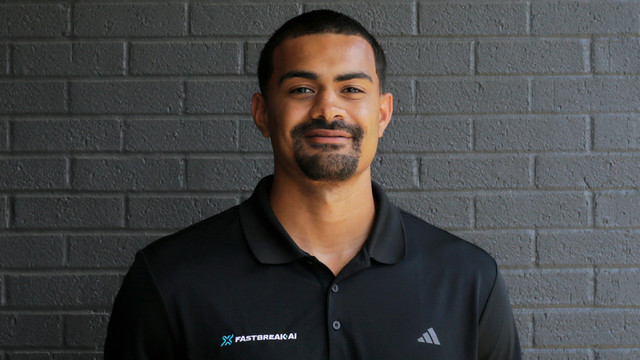Entrepreneurship
Q&A: A Spider changes the game
Jarmal Bevels, ’18 and GC’20, has had an entrepreneurial streak since he was selling iPhone cases and fixing screens for classmates out of his truck in high school. His latest venture, a startup called SEQL, was acquired in November 2024 by Fastbreak.ai, an AI-based scheduling system for professional sports. The company rebranded SEQL as Fastbreak Connect.
Following the acquisition, Bevels joined Fastbreak.ai as vice president of product and was later promoted to general manager overseeing Fastbreak Connect, Fastbreak Pulse, and Swoop Media — three interconnected business lines focused on transforming youth sports through technology, data, and content.
What is Fastbreak Connect?
We work with a lot of brands who want to sponsor youth sporting events. It’s aligned with what we built at SEQL — we called it Impact-as-a-Service. The idea was to use social impact and corporate responsibility to drive real good. We helped offset the cost for youth and parents to access opportunities and experiences, while brands gained authentic exposure through meaningful partnerships.
At Fastbreak, we’ve evolved that same concept — using youth sports sponsorships to connect brands to real communities through data-driven, measurable impact. We’re really the middleman. We have a database of 100,000 events, we have all this metadata on it, and we broker relationships with organizers to activate brand sponsorships and deliver on-site experiences that feel authentic and local.
Our customers and our athletes really resonate with being in person at these events, where [youth athletes and families] can touch a product or talk to a brand ambassador. The digital space is extremely competitive. You’re competing with everything that’s on an iPhone. When we’re out there in this event space and they walk up to the tent, we usually have their attention the entire time.
What about Fastbreak Pulse?
We work with cities to help them get a pulse of their city [and] of the youth sporting visitors that are coming into town to participate in sporting events. Where do they come in? How long are they staying? What sports are they participating in? We do all this through powerful technology — combining location services, first-party data, and on-site surveying to understand visitor behavior and event impact in real time.
“We highlight stories of access, opportunity, and positive impact that go far beyond the game.”
What’s an example of a brand you’ve worked with?
We work with Adidas. Adidas wants to help Latinx Americans and African Americans get into soccer. They give us essentially X dollars to find camps and organizers with this specific demographic and do all the logistics and handling of sponsoring these teams or athletes. We create impactful storytelling content — capturing these young athletes and the communities they represent. With partners like Adidas, we highlight stories of access, opportunity, and positive impact that go far beyond the game.
Why youth sports?
One, it was a business decision. The youth sports market is growing to be a $32 billion market. We’re noticing it’s not just Nike and Adidas anymore as the big players. There are a lot of small startup brands that are on TikTok and social media. They’re getting ingrained, where youth participants are associating themselves with either local or regional brands.
Two, it’s the foundation for a lot of youth athletes. Myself and the other two founders of SEQL, we were all collegiate athletes. [Bevels was a wide receiver for Spider football.] We know how expensive it is to get access to materials, goods, and equipment. And we know that youth sports is the foundation where their journey begins, and not just in the sports space. Sports have really driven me professionally. We talk a lot about how there’s a pro after sports. This is not just playing professional sports [but also] being a professional after being somebody who played sports growing up.
How did you feel about the acquisition?
We were ecstatic — and honestly a little nervous — because it was our first acquisition. It was a huge learning moment that validated the work we’d been doing and gave us confidence that we were building something real and valuable.
How would you say playing football at UR influenced your experience with Fastbreak Connect?
It really comes down to the culture and what I learned about being on a big team while playing college football. Something that our coaches said a lot to us was, “You represent the name on your jersey, so when you walk around campus you’re a football player, and when you walk off campus you’re a student at the University of Richmond. But [you’re] also representing yourself as an individual contributor with the name on your back.” I lean on that when I make decisions about culture and the ways I want my team to operate here.
What advice would you give anyone with an entrepreneurial spirit?
One, explore and try as much as possible. If you have an idea, get started. And my second thing is the world of technology is insane, and there are a lot of AI tools and a lot of things that can expedite building as you get ideas started.
